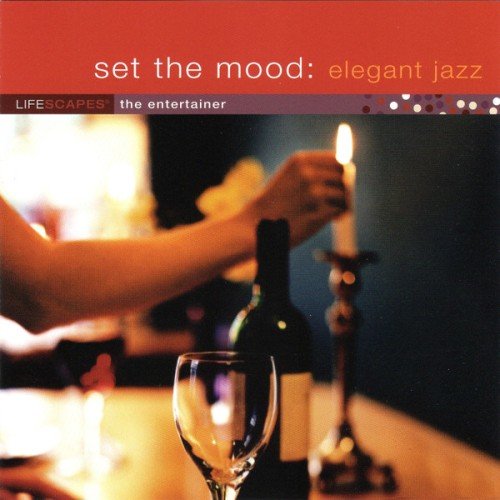Nelly Akopian-Tamarina - Brahms: Handel Variations, Op.24; Ballades, Op.10 (2017) CD-Rip

Artist: Nelly Akopian-Tamarina
Title: Brahms: Handel Variations, Op.24; Ballades, Op.10
Year Of Release: 2017
Label: Pentatone
Genre: Classical
Quality: FLAC (image+.cue,log,scans)
Total Time: 63:38
Total Size: 227 Mb
WebSite: Album Preview
Tracklist: Title: Brahms: Handel Variations, Op.24; Ballades, Op.10
Year Of Release: 2017
Label: Pentatone
Genre: Classical
Quality: FLAC (image+.cue,log,scans)
Total Time: 63:38
Total Size: 227 Mb
WebSite: Album Preview
Johannes Brahms
[1]-[27] Variations and Fugue on a Theme of Handel, Op.24
[28]-[31] 4 Ballades, Op.10
Performers:
Nelly Akopian-Tamarina piano
This recording represents a slice of a vanished world: pianist Nelly Akopian-Tamarina studied in Moscow in the 1950s and 1960s, and her teacher was Alexander Goldenweiser, a friend of Scriabin and Rachmaninov, and a carrier of traditions stretching well back into the 19th century. Her career was interrupted by disfavor with Soviet authorities in the 1970s, but has been resumed in her old age with compelling results. Your mileage, certainly, may vary. These are highly individualistic -- not to say idiosyncratic -- versions of these Brahms standards. Check out the Four Ballades, Op. 10, where the final B major ballade checks in at more than three and a half minutes longer than the straightforward version of Alfred Brendel of some years ago. It would not be possible to differ more than she does from Brendel. Akopian-Tamarina is intimate, reflective, dreamy: too much so for some, brilliantly right for others. She tends to favor slow tempos, but the Variations and Fugue on a Theme of Handel, Op. 24, is explosively fast in parts. You might find that in the abstract world of the variation set she is pushing things too far, yet she finds the ecstasy in this oversized set, which was one of the few works in which Brahms seemed to investigate the lessons of late Beethoven. You wouldn't want this as your only recording of the Brahms Ballades and Op. 24 variations, yet you probably shouldn't ignore it, either.


![Coco Chatru Quartet - Lost Christmas (2025) [Hi-Res] Coco Chatru Quartet - Lost Christmas (2025) [Hi-Res]](https://www.dibpic.com/uploads/posts/2025-12/1765719561_coco-chatru-quartet-lost-christmas-2025.jpg)
![Stephen McCraven - Wooley the Newt (2025) [Hi-Res] Stephen McCraven - Wooley the Newt (2025) [Hi-Res]](https://www.dibpic.com/uploads/posts/2025-12/1765906334_cover.jpg)

![Wadada Leo Smith - Divine Love (1979/2025) [Hi-Res] Wadada Leo Smith - Divine Love (1979/2025) [Hi-Res]](https://www.dibpic.com/uploads/posts/2025-12/1765802240_cover.jpg)


